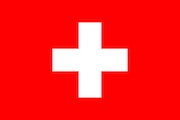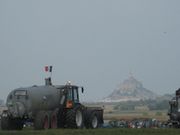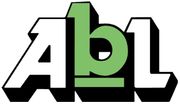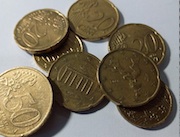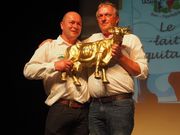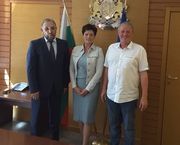EMB Newsletter June 2018
Newsletter as PDF
Contact
EMB - European Milk Board asbl
Rue de la Loi 155
B-1040 Bruxelles
Phone: +32 - 2808 - 1935
Fax: +32 - 2808 - 8265
Dear dairy farmers, dear interested parties,

It's a pleasant surprise when EU policy-makers propose positive developments: At the end of May, the European Parliament voted in favour of the report by Italian MEP Herbert Dorfmann on the 'Future of Food and Farming' and thus presented the Commission with a clear direction for the reform of the Common Agricultural Policy.
From the perspective of milk producers, the report includes some important, positive proposals to bring stability to the dairy market. For example, it talks about the introduction of effective instruments that would be better equipped to align supply and demand. It also specifically mentions the possibility of milk volume reduction during crises, similar to the EU volume reduction programme implemented in late 2016 that was a clear success. Furthermore, the scope of the Milk Market Observatory should also be expanded i.e. it should not simply collect data about the market situation – as is currently the case – but it should also take preventive action as soon as a market imbalance is detected.
Another positive proposal is to exclude sensitive sectors from free-trade agreement negotiations, with special protection for raw milk. This is an important point for European milk producers considering negotiations between the EU and New Zealand & Australia have just begun and there is an inherent imbalance between us and producers from Oceania who have a competitive advantage.
Of course, the key question is whether Agriculture Commissioner Hogan will actually include these proposals in the draft text on the CAP reform, and will take action against chronic overproduction and implement effective measures to combat unfair prices on the dairy market.
On the occasion of World Milk Day on 1 June, many of our member organisations organised actions to draw attention to the topic of milk production. In Italy, we presented a plan to set up a milk and cheese museum. You can read more about the activities in the individual countries in this issue.
There is also some good news from France: On 14 June, the fifth 'Fair Milk Conference' took place in Lille. In recent years, the event has become a meeting point and forum for farmers, processors, consumers and policy-makers, where everything revolves around fairly-produced milk products. Our French colleagues have done their utmost to give the Fair Milk Initiative, which is now present in seven countries, a multi-dimensional platform. This issue also includes an interview with the organisers. The 'Golden Faironika' for outstanding contribution to sustainable food production was awarded at the event this year as well.
Roberto Cavaliere, President of the Italian association of milk producers (APL) and EMB Executive Committee member
World Milk Day: Fairness in the dairy sector – from cowshed to fridge shelf
Switzerland: Stop export dumping!
APLI declares 2018 as a pivotal year for milk
Towards fair pay
Milk imports from Oceania will destroy small-scale dairy farms
EMB milk price comparison
Interview: "Fair milk to guarantee viable prices"
Important political meetings of the European Milk Board
Impressum
European Milk Board asbl
Rue de la Loi 155
B-1040 Bruxelles
Phone: +32 2808 1935
Fax: +32 2808 8265
E-Mail: office@europeanmilkboard.org
Website: http://www.europeanmilkboard.org


